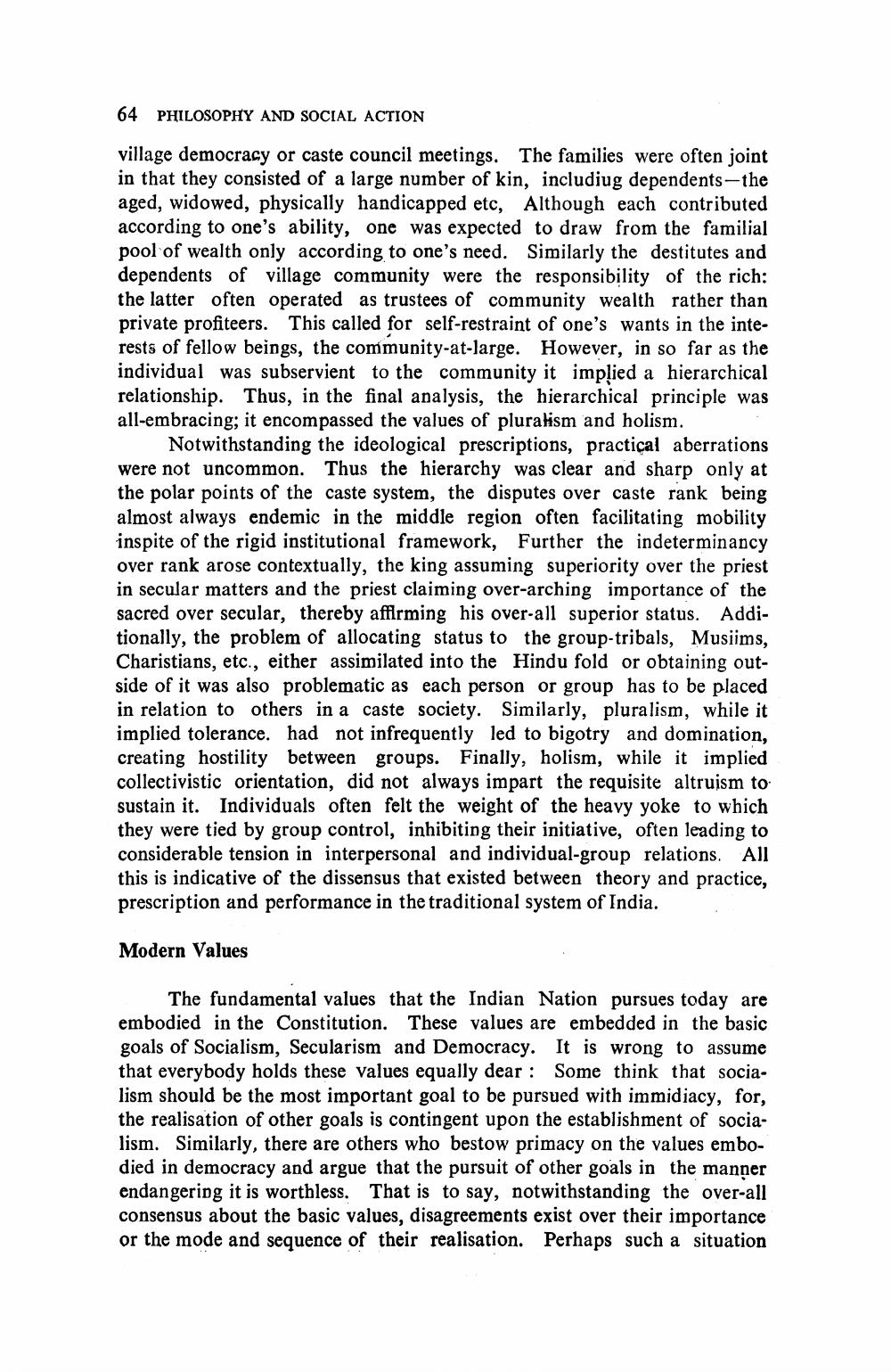Book Title: Traditional Values And Contemporary Dilemmas India Author(s): T K Oommen Publisher: T K Oommen View full book textPage 4
________________ 64 PHILOSOPHY AND SOCIAL ACTION village democracy or caste council meetings. The families were often joint in that they consisted of a large number of kin, includiug dependents-the aged, widowed, physically handicapped etc, Although each contributed according to one's ability, one was expected to draw from the familial pool of wealth only according to one's need. Similarly the destitutes and dependents of village community were the responsibility of the rich: the latter often operated as trustees of community wealth rather than private profiteers. This called for self-restraint of one's wants in the interests of fellow beings, the community-at-large. However, in so far as the individual was subservient to the community it implied a hierarchical relationship. Thus, in the final analysis, the hierarchical principle was all-embracing; it encompassed the values of pluralism and holism. were not uncommon. Notwithstanding the ideological prescriptions, practical aberrations Thus the hierarchy was clear and sharp only at the polar points of the caste system, the disputes over caste rank being almost always endemic in the middle region often facilitating mobility inspite of the rigid institutional framework, Further the indeterminancy over rank arose contextually, the king assuming superiority over the priest in secular matters and the priest claiming over-arching importance of the sacred over secular, thereby affirming his over-all superior status. Additionally, the problem of allocating status to the group-tribals, Musiims, Charistians, etc., either assimilated into the Hindu fold or obtaining outside of it was also problematic as each person or group has to be placed in relation to others in a caste society. Similarly, pluralism, while it implied tolerance. had not infrequently led to bigotry and domination, creating hostility between groups. Finally, holism, while it implied collectivistic orientation, did not always impart the requisite altruism to sustain it. Individuals often felt the weight of the heavy yoke to which they were tied by group control, inhibiting their initiative, often leading to considerable tension in interpersonal and individual-group relations. All this is indicative of the dissensus that existed between theory and practice, prescription and performance in the traditional system of India. Modern Values The fundamental values that the Indian Nation pursues today are embodied in the Constitution. These values are embedded in the basic goals of Socialism, Secularism and Democracy. It is wrong to assume that everybody holds these values equally dear : Some think that socialism should be the most important goal to be pursued with immidiacy, for, the realisation of other goals is contingent upon the establishment of socialism. Similarly, there are others who bestow primacy on the values embodied in democracy and argue that the pursuit of other goals in the manner endangering it is worthless. That is to say, notwithstanding the over-all consensus about the basic values, disagreements exist over their importance or the mode and sequence of their realisation. Perhaps such a situationPage Navigation
1 2 3 4 5 6 7 8 9 10
